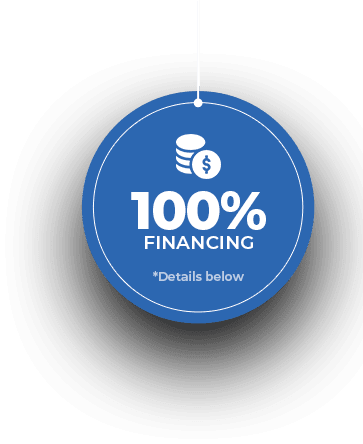
SOLAR FAQs
ROOFING FAQ
SOLAR – FAQ
By installing a solar energy system on your property, you lower your electricity costs and insulate yourself from future increases in electricity prices. Depending on your local utility costs and solar regulations, you may be able to save a certain amount of money, but installing solar is always a wise investment.
Like other renewable energy sources, solar electricity has several advantages for the environment and human health. Going solar leads in fewer air pollutants like sulfur dioxide and particulate matter, which can have negative health effects, and lower greenhouse gas emissions.
Examining your utility electricity bill is the simplest approach to determine how much electricity you pay for (and how much electricity you consume each month). You can learn how to read your bill from a sales representative at Quality First Home with no problem.
The method through which utilities credit owners of solar energy systems for the electricity generated by their solar panels is known as net metering. You only pay for the electricity you consume over and beyond what your solar panels can produce when you employ net metering. Make careful to complete your research in advance as net metering laws vary from state to state, from Massachusetts to California to Hawaii.
According to studies, houses with solar energy systems are worth more when they are put on the market. However, if you own your solar panel system rather than lease it, your home’s worth will rise. Furthermore, leases aren’t often even offered in the region where Quality First Home operates. Installing solar panels will typically boost your home’s worth more than remodeling your kitchen.
According to studies, houses with solar energy systems are worth more when they are put on the market. However, if you own your solar panel system rather than lease it, your home’s worth will rise. Furthermore, leases aren’t often even offered in the region where Harvest operates. Installing solar panels will typically boost your home’s worth more than remodeling your kitchen.
Sunlight determines how much power your solar energy system can produce. Your solar panels will therefore generate no energy at night and somewhat less energy while it’s cloudy outside. However, solar is a wise choice even if you reside in a cloudy city due to high electricity bills and financial advantages.
Solar panels use sunlight to generate electricity, thus if your panels are covered with snow, they are unable to do so. But once the sun is out, the panels will soon warm up, shed the snow, and resume energy production. Typically, snow isn’t heavy enough to damage your panels structurally, and since most panels are angled, the snow will slip off. If snow does build, cleaning your panels is simple.
You will continue to have a connection to the grid even after installing solar panels on your property. This enables you to send power back to the grid when you create more energy than you need and to draw from it when your system is unable to supply all of your needs. With a solar energy system that includes battery storage, it is conceivable to get off the grid, but it will be very expensive and unnecessary for the majority of houses.
You will still get a bill from your utility unless your solar energy system incorporates battery storage and you are completely off the grid. With a solar panel system that matches your energy demand, you can significantly lower your cost or perhaps eliminate the balance you owe.
In the event of a blackout, your solar panel system will switch off if it is connected to the grid. This is to stop solar panels from transmitting power back to the grid and injuring emergency responders and electricity company workers. However, you can purchase some inverters that, when used with batteries, offer backup power during a power outage.
For the 25 to 35 years they will generate power, solar panel systems are composed of sturdy tempered glass and require little to no maintenance. Most of the time, you don’t even need to frequently clean your solar panels. The majority of equipment manufacturers include warranties, and Harvest will handle the service end of these questions and get the system rectified if something does go wrong.
Where you reside affects the rebates and incentives available for solar. The biggest is the federal investment tax credit (ITC), which entitles you to a 30% tax deduction for the price of your solar energy system. Additional tax credits are offered by some states, and some utilities and municipalities additionally provide cash rebates or other incentives. Additionally, businesses can write off their solar investment just like any other piece of equipment.
You can go solar if you can afford to pay your electricity bill. For homes with good credit, going solar with no down payment is an easy way to start saving money on electricity.
Solar installation is best done on south-facing roofs with little to no shade and adequate room for a solar panel system. If your home doesn’t have the ideal solar roof, there are often workarounds available. East and west facing roofs can still produce enough power to make it worthwhile.
Solar energy systems can last for 25 to 35 years, and if you need to change your roof, it might be expensive to take them down and put them back up. Before you complete your solar installation, you should take care of any necessary roof maintenance that will become necessary in the next 10 to 15 years.
Solar panels can typically survive hail, wind, and snow and are quite robust. For 25 to 35 years, your system should continue to provide electricity with very little (if any) maintenance difficulties.
Owning a solar energy system will boost the value of your home when you sell it, according to research on the subject.







